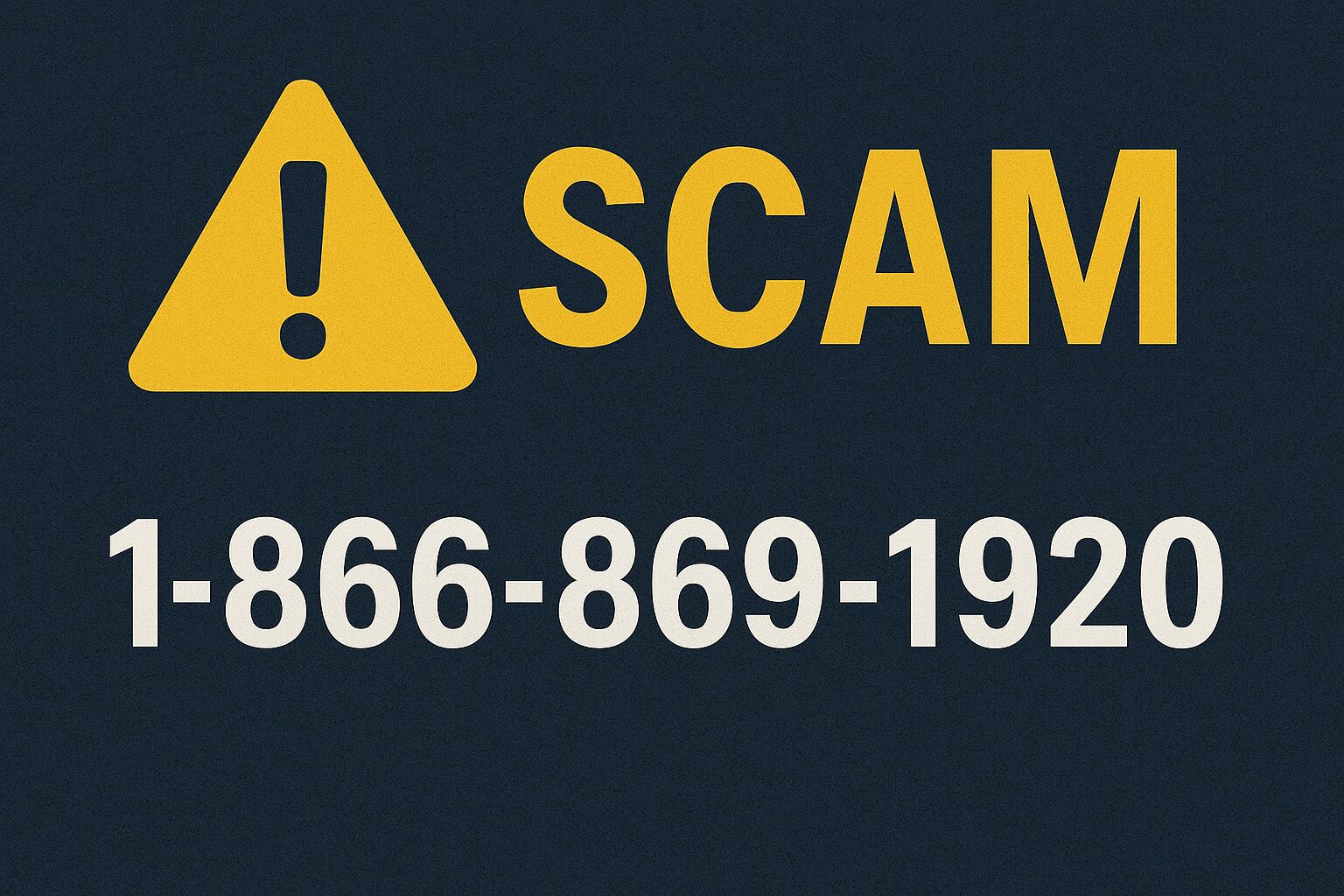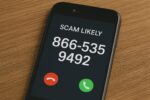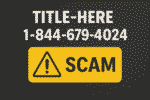1‑866‑869‑1920 is a phone number that has raised concerns over the years due to its association with scam calls. This article dives deep into the background of this number, examines real customer experiences, and offers practical tips to protect yourself from potential scams.
Below is a brief biographic table with key facts about the number and its reported usage:
| Aspect | Details |
|---|---|
| Phone Number | 1‑866‑869‑1920 |
| Reported Usage | Survey calls and unsolicited inquiries |
| Reputation | Negative; flagged by spam blockers like Robokiller |
| Common Claim | Impersonation of legitimate survey organizations (e.g., Polaris) |
| User Reports | Multiple complaints on forums and spam call databases |
Background and Significance
Scam calls remain a persistent issue, and phone numbers like 1‑866‑869‑1920 have been reported by many as a source of unsolicited calls. These calls often claim to be conducting surveys or gathering customer feedback for reputable companies. However, users have noted that such calls are frequently part of a broader scam network aimed at extracting personal information.
Key Points:
-
Scam Identification: Users have reported that calls from this number often ask for personal details such as email addresses or confirm that you own certain products.
-
Reported on Multiple Platforms: This number is frequently flagged on platforms like Robokiller and in forums such as Polaris RZR discussions.
-
Negative User Reputation: Numerous reports suggest that callers from this number sometimes use pre-recorded messages and questionable tactics to gain trust.
How Scammers Operate Using This Number
Scammers use 1‑866‑869‑1920 to lure potential victims through tactics that mimic legitimate survey calls. Here’s a breakdown of their methods:
-
Personalization Tactics:
Scammers may reference public information (like ownership of certain products) to appear credible. For instance, in some cases, they claim to be from research firms partnered with known brands, even if these firms are not officially affiliated. -
Information Gathering:
They ask for basic personal details such as your name and email address, ostensibly to send survey links. This information can later be misused or sold to other fraudulent entities. -
Use of Pre-recorded Messages:
Many reports indicate that callers using this number rely on scripted messages. These can include references to surveys or other incentives designed to get you to reveal more information. -
Persistent Follow-Up:
Victims often report multiple calls from the number despite requests to be removed from the caller list.
Below is a table summarizing the typical characteristics of calls made from this number:
| Characteristic | Description |
|---|---|
| Caller Behavior | Pre-recorded messages, persistent follow-up |
| Information Requested | Name, email address, confirmation of public details |
| Caller ID | Often shows an unavailable or generic number |
| User Reaction | Suspicion and frustration; requests to be removed |
| Reported by | Robokiller users, online forums, and scam call databases |
Real Customer Experiences and Case Studies
Numerous reports from forums reveal a consistent pattern of suspicious calls from 1‑866‑869‑1920. Consider these case studies:
-
Case Study 1: The Unwanted Survey Call
A Polaris RZR owner received a call claiming to conduct a survey related to their vehicle. The caller referenced details that the owner had publicly shared online. Despite assurances, the owner was wary, declined to provide further details, and later found multiple negative reports about similar calls online. -
Case Study 2: Persistent Follow-Up
Another victim reported that even after asking the caller to remove their information, the number continued to call repeatedly. This persistence caused significant disruption and led the victim to share their experience on multiple scam alert forums.
User Feedback Highlights:
-
Suspicious Personalization: Callers mention details that could be obtained from public profiles.
-
Refusal to Provide Verification: Legitimate organizations rarely demand personal details over the phone without prior contact through official channels.
-
Multiple Call Attempts: Victims frequently report repeated calls despite requests to cease further contact.
Tips to Protect Yourself from Scam Calls
Protecting yourself from scam calls involves being proactive and cautious. Here are practical tips:
-
Do Not Share Personal Information:
Always avoid giving out personal details like your email or full name over an unsolicited phone call. -
Verify the Caller:
If a call seems suspicious, hang up and independently verify the information by contacting the company directly using numbers found on official websites. -
Use Call Blocking Apps:
Applications such as Robokiller can help block numbers with negative reputations. Check user reviews and ratings before installation. -
Register with the National Do Not Call Registry:
This can help reduce the number of unsolicited calls you receive. -
Report Suspicious Calls:
If you receive calls from 1‑866‑869‑1920 or similar numbers, report them to your local consumer protection agency and consider posting on scam alert forums to warn others.
Quick Reference List:
-
Never share: Personal or financial information.
-
Always verify: Caller identity through official channels.
-
Block & report: Use apps and report scam calls.
How to Identify and Verify Legitimate Calls
Knowing the signs of a legitimate call can save you from falling prey to scams:
-
Official Communication:
Legitimate companies typically use verified email addresses or official websites for communication. A sudden call asking for personal data without prior notice is a red flag. -
Caller ID Check:
Check if the caller ID displays the name of a known organization. Scammers often hide behind generic or unavailable numbers. -
Direct Verification:
If in doubt, hang up and call back using a number found on the company’s official website.
Below is a simple table with steps to verify a call:
| Step | Action |
|---|---|
| Step 1: Listen Carefully | Identify any specific names or details mentioned by the caller. |
| Step 2: Verify | Cross-check the number with the official website. |
| Step 3: Do Not Provide Info | Refrain from sharing personal data until you are sure of authenticity. |
| Step 4: Hang Up | If anything seems off, end the call immediately. |
| Step 5: Report | Report suspicious calls to relevant authorities or consumer protection sites. |
Final Thoughts
Scam calls using numbers like 1‑866‑869‑1920 are a serious issue for many consumers. By understanding how these scams operate and taking the necessary precautions, you can protect your personal information and reduce the risk of falling victim to fraudulent schemes.
Remember:
-
Stay cautious: Verify all unsolicited calls independently.
-
Protect your data: Never give out personal information without confirming the caller’s identity.
-
Report and block: Use available technology to minimize unwanted calls.
By following these guidelines, you can stay informed and safeguard yourself against scam calls. Stay alert, protect your information, and share these tips with others to help build a community of vigilant consumers.













